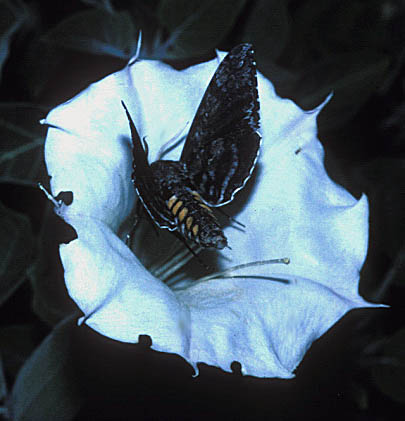Podcast: Play in new window | Download
Subscribe: Apple Podcasts | Spotify | Email | RSS | More
Locally-Sourced Science contributor Esther Racoosin speaks to Dr. Robert Raguso, Professor in the Department of Neurobiology and Behavior at Cornell University.
Dr. Raguso studies floral scent, which is an important component of plant-pollinator interactions. During this interview, he discusses the behavior of hawkmoths, which gather nectar from night-flowering plants. Investigators in Dr. Raguso’s lab have found that hawkmoths are attracted to not only different types of scents, but also other molecules secreted by flowers.
Did you know that honeybees are considered to be livestock? Honeybees are the most commonly raised insect and the only insect in the U.S. that provides food for humans at a large scale. In many parts of the world, beekeepers already work with veterinarians to keep their hives healthy, and now the U.S. is catching up. Keeping managed bee hives healthy also can stop the spread of diseases to wild pollinators.
In honor of pollinators week, Patricia Waldron talked with Dr. Robin Radcliffe, a Senior Lecturer in Wildlife and Conservation Medicine at the Cornell University College of Veterinary Medicine. He teaches a honeybee health course to veterinary students.
Hey, we’re all volunteer ya know? Come join us! Email: locallysourcedscience@gmail.com
And listen to the show, it’s good, all locally sourced. Trust us.
Photo: Manduca hawkmoth visiting Datura flower, courtesy of Dr. Robert Raguso.
